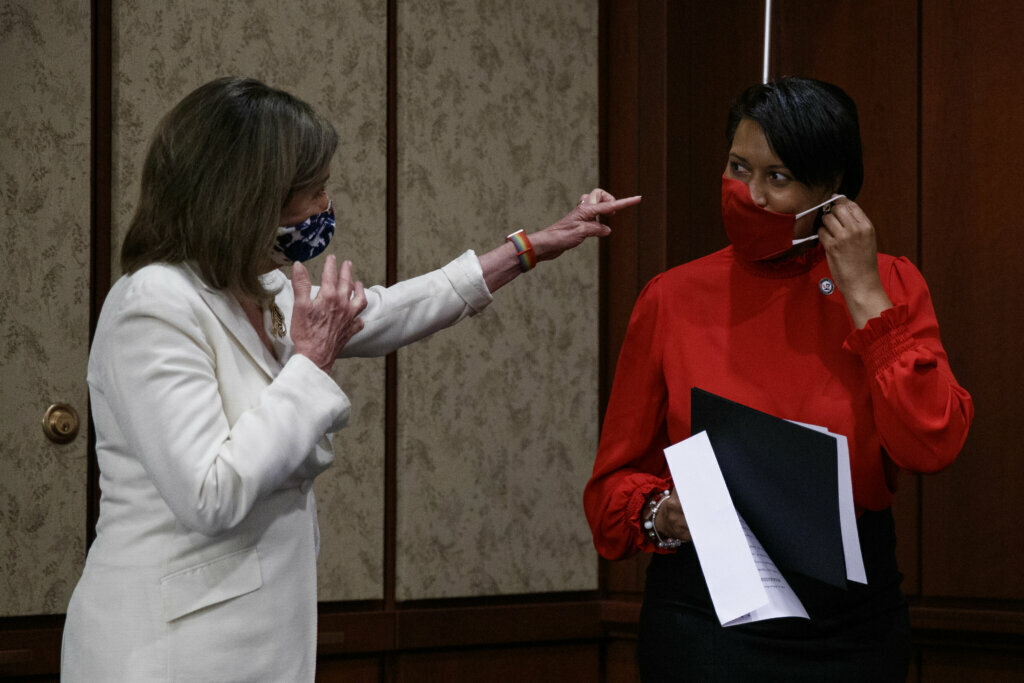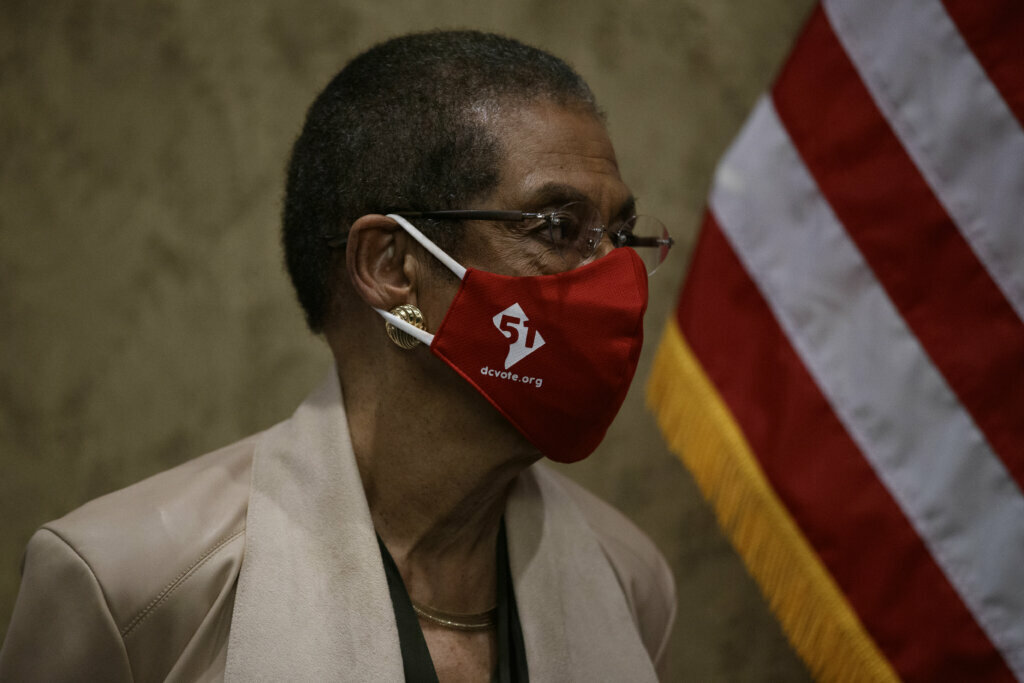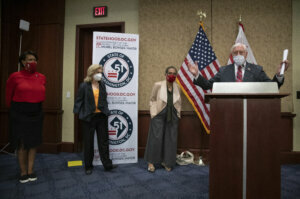
A host of local and federal leaders gathered on Thursday to praise the D.C. statehood bill, which is expected to pass the House on Friday for the first time ever, and to throw elbows at the bill’s critics.
The Washington, D.C. Admission Act of 2019 would make D.C. a state, with full representation in Congress and full control over its own affairs. It would change its name to Washington, Douglass Commonwealth, for abolitionist Frederick Douglass.
“Here we are, to correct an injustice,” said House Speaker Nancy Pelosi, D-Calif.
The first vote by the House will be from noon to 1 p.m. and the second one is expected from 1 p.m. to 2 p.m.
The roughly 700,000 people who live in the District — more than Vermont or Wyoming — “pay taxes, serve in the military … contribute to the life of America in a very powerful way,” Pelosi added, yet are “denied their right to fully participate in democracy.”
Del. Eleanor Holmes Norton, D.C.’s nonvoting representative in Congress, said her great grandfather Richard Holmes was a slave who walked away from a plantation in Virginia. In fighting for D.C. statehood, she said, “I continue the walk my family has made.”
She added that her own Democratic Party has sometimes been against the move. Norton had introduced a statehood bill in her first term in Congress in 1991, but “even with my party in power then, I did not succeed,” she said.

Republican opposition
After the expected passage Friday, the bill faces an uphill challenge. The majority-Republican Senate is not likely to even consider the bill.
“Our Founding Fathers were correct in the first place. They said very clearly that they wanted the District of Columbia to be separated out … I really don’t see it happening in the United States Senate,” Sen. Mike Rounds, R-S.D., told NBC News. South Dakota has fewer than 900,000 people.
President Donald Trump has made an explicitly partisan argument against it, saying, “Why? So we can have two more Democratic — Democrat senators and five more congressmen? No, thank you. That’ll never happen.” Based on its population, D.C. would have one representative in Congress.
D.C. Mayor Muriel Bowser said the question of representation “is not a partisan issue; it is an American issue.”
She added that she did not concede defeat: “I do not let any member of Congress off the hook, regardless of party or regardless of house.”
“You’re still going to have a nation’s capital,” Bowser said, encompassing the Capitol, the National Mall and all major federal buildings.
The mayor added that the recent calling of federal police and troops into the District, including the forcible removal of unarmed protesters from Lafayette Square for Trump to pose for photos with a Bible on June 1, showed even more clearly the reasons an independent D.C. is necessary.
“The whims of a federal government can encroach on even our limited autonomy,” Bowser said, later adding that most Americans probably didn’t realize that “the president could move the Army to address a local police matter.”
If the bill does not become law in this Congress, Bowser said, she wanted it to be acted on in the first 100 days of the next one, which stands a chance of having Democratic majorities in both houses.
Either way, she said, she wouldn’t stop pushing.
“Born here without a vote, but I swear I will not die here without a vote,” Bowser said.
The Founders’ opinions
D.C. Council Chairman Phil Mendelson said that he had reread the Federalist Papers and considered the building blocks of the Constitution.

He said that though the Founders determined that the federal district shouldn’t be part of a state, “you just won’t find” anything that says residents of that district shouldn’t have a vote in Congress — “nothing about taking away the full citizenship of the citizens of the nation’s capital,” Mendelson said.
House Majority Leader Steny Hoyer, D-Md., said about the Founders, “nobody thought that states would be admitted on the basis of their politics. Rather, they would be admitted on the basic premise of their citizenship as Americans.”
To consider the politics, he said, was “un-American.”
Hoyer was asked to respond to a recent comment from Rep. Jody Hice, R-Ga., who said “the District is not prepared to shoulder the burden of statehood. This would apply economically, fiscally, as well as a host of other ways.”
Hoyer pulled no punches: After asking twice for dramatic effect what state Hice was from, he said, “It is strange for a representative of a state that committed sedition [and] instituted slavery, segregation and Jim Crow to say that somehow the District of Columbia is not deserving of statehood. Frankly, if that was the criterion, states would come in and out.”
Bowser pointed out that D.C. has “balanced 24 budgets” and had a Triple-A bond rating.








